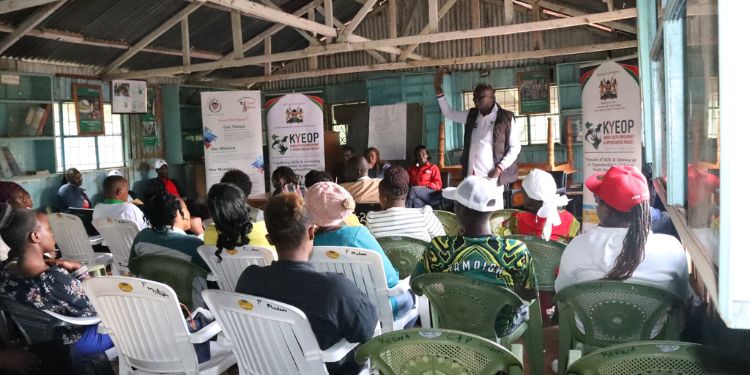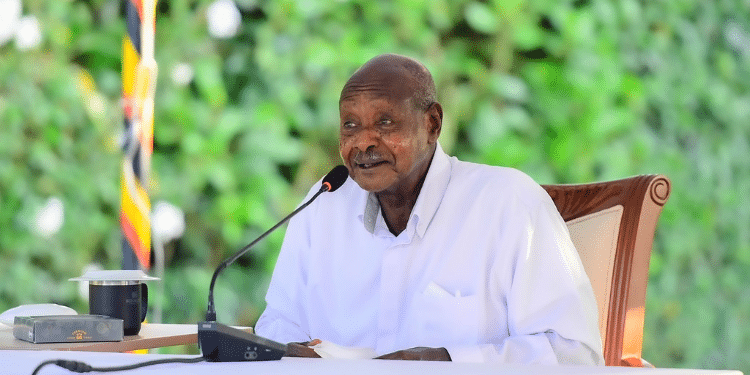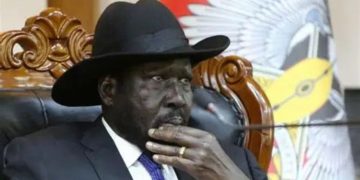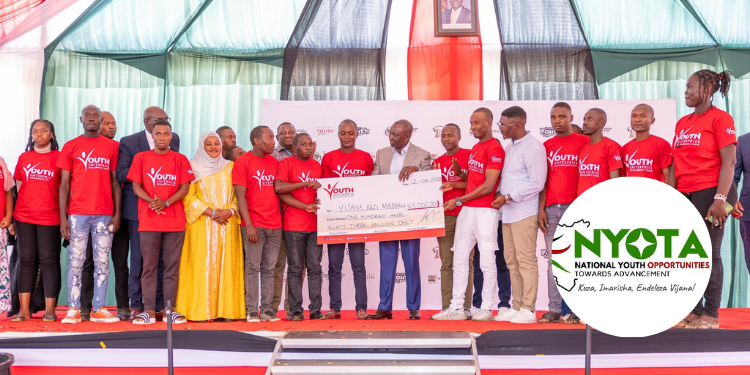The National Youth Opportunities Towards Advancement (NYOTA) Program, a government initiative supported by the World Bank, provides jobless Kenyan youths with up to Ksh 50,000 in start-up capital.
The program is built on the success of the World Bank-supported Kenya Youth Employment and Opportunities Project (KYEOP), which, over the years, has helped thousands of young Kenyans launch businesses, gain skills, and create jobs, paving the way for NYOTA to scale opportunities nationwide.
The NYOTA program aims to empower 800,000 vulnerable youths aged 18 to 29 across all 47 counties by establishing 110,000 youth-led enterprises and certifying 20,000 artisans through the Recognition of Prior Learning (RPL) initiative.
It also aims to skill and connect 90,000 youths to employment, while training 600,000 on financial literacy and access to government procurement opportunities.
Through Component 2, implemented by the State Department for MSME Development via the Micro and Small Enterprises Authority (MSEA), the project will provide entrepreneurship training, business development services, and phased start-up capital to 70 youth in every ward.
After classroom training, each youth will undergo two months of mentorship and incubation support, followed by staged seed money, with continued guidance from business development experts to foster their enterprise growth.
How KYEOP Birthed NYOTA Program, Offering Ksh 50K to Jobless Kenyans
The launch of NYOTA follows the remarkable success of KYEOP, which was implemented by the government in partnership with the Kenya Private Sector Alliance (KEPSA) and the MSEA, with support from the World Bank.
KYEOP’s objective was to increase employment and earnings opportunities for targeted youths through four components: improving youth employability, supporting job creation, enhancing labor market information, and strengthening youth policy development and project management.
Under its first component, KYEOP addressed the youth skills mismatch by engaging training providers and employers to offer both formal and informal work experience in the sector.
The second component supported job creation by helping youths launch new businesses, grow microenterprises, and adopt innovative approaches for hard-to-reach groups.
The third improved access to labor market information (LMI), while the fourth built capacity for youth policy development, monitoring and evaluation (M&E), and project management.
Notably, the impact was significant. Nearly 86,000 youths launched businesses, with 88% of grant beneficiaries successfully starting or expanding ventures.
By promoting entrepreneurship as a career path, KYEOP provided participants with the skills and confidence they needed, while also connecting 220,000 youths to essential government programs, such as Access to Government Procurement Opportunities (AGPO).
Also Read: NYOTA Rolls Out Free Training for Youths in 8 Counties
KYEOP Empowers Kenyan Youth, Women and Vulnerable Groups
KYEOP generated 125,000 direct jobs and created another 30,000 opportunities through secondary employment.
From the 12,000 applicants, 750 beneficiaries received awards of up to $36,000 (approximately Ksh 4.5 million), resulting in the creation of 2,700 jobs nationwide.
Additionally, 63,500 beneficiaries received skills training, with more than 33,000 earning skill certificates.
Women were a central focus of KYEOP. The program tackled barriers such as childcare and lack of capital by providing direct grants, targeted outreach for the Business Plan Competition, and mentoring.
As a result, women experienced an 18.7% increase in employment, compared to a 18.3% increase for men. Vulnerable groups also benefited, with quotas for persons with disabilities and initiatives such as Future Bora, which supported 1,900 marginalized youths.
Also Read: Govt Answers the Top 5 Questions Kenyans Are Asking About NYOTA Project
Unemployment in Kenya
Kenya’s broader challenge remains job quality, with only 10% of the workforce in formal employment.
While the overall unemployment rate is 5.4%, youth unemployment stands at 8.4%, with most young people trapped in low-paying, unstable informal sector jobs.
With the population projected to hit 63.9 million by 2030, including 22.3 million youths aged 15–34, the pressure to create sustainable employment opportunities continues to mount.
The government and the World Bank say that by scaling KYEOP into NYOTA, Kenya is investing in human capital, promoting entrepreneurship, and expanding wage employment pathways.
Follow our WhatsApp Channel and X Account for real-time news updates.





















































![Senator Allan Chesang And Chanelle Kittony Wed In A Colourful Ceremony [Photos] Trans Nzoia Senator Allan Chesang With Channelle Kittony/Oscar Sudi]( https://thekenyatimescdn-ese7d3e7ghdnbfa9.z01.azurefd.net/prodimages/uploads/2025/11/Trans-Nzoia-Senator-Allan-Chesang-with-Channelle-KittonyOscar-Sudi-360x180.png)





















I’m 35 years old am I still eligible for this program?